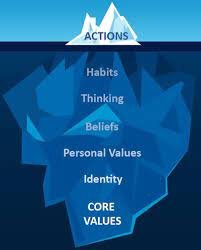
Young kings
Life Of A King Official Trailer (2014) - Cuba Gooding Jr., Dennis Haysbert
“Character is like a tree and reputation is like its shadow. The shadow is what we think of it; the tree is the real thing.”
—Abraham Lincoln
Why Character Education is Important!
As children practice skills that promote character development, they build a reservoir of strength that they can draw on throughout their lives. Self-esteem, confidence, courage, resilience, integrity, and forgiveness are examples of traits that can sustain children at home, at school, and in the community.
We like to say that PERSONALITY is above the water,
CHARACTER is below the water!
Character is an aggregate of all our traits and includes all of our thoughts, feelings, words, and actions. character is the sum of all our habits. Our children’s character is molded by their decisions and affects every aspect of their current and future life. As parents and teachers, we’re responsible for their upbringing, and we play a vital role in helping children develop their full potential.
1. Character development is the basis for personal growth.
As children practice skills that promote character development, they build a reservoir of strength that they can draw on throughout their lives. Self-esteem, confidence, courage, resilience, integrity, and forgiveness are examples of traits that can sustain children at home, at school, and in the community.
2. Character development is the foundation for lifelong learning.
Schools that teach character education report increased academic performance and attendance. They also report decreases in disciplinary problems. Children appreciate the safe environment that occurs when their peers are also learning about respect, honesty, and compassion. Teachers also find it easier to teach when children are learning to exhibit habits of patience, diligence, and self-control in the classroom.
3. Character is the bedrock that solid relationships are built on.
Our children will be happier, more caring, more forgiving, and more responsible as they are taught to think about the needs of others. Cooperation, tolerance, and teamwork are examples of social skills that can be experienced firsthand when children are given the tools and opportunities. Schools and homes are ideal settings for children to practice communicating, sharing, and getting along. Speaking of how relationships and character are intertwined, Woodrow Wilson said, “If you will think about what you ought to do for other people, your character will take care of itself.”
4. Character shapes us as neighbors and citizens.
Our character is a holistic language we daily communicate to others. We constantly affect one another. Beyond our homes and schools, our children’s character will also affect all of us in the workplace and in our communities as they grow to be our employees, neighbors, and leaders. When young people have not been taught principles of character that can anchor them, and if they don’t feel strong ties to faith, family, or community that nurture them, they may feel adrift and hopeless. They may not be attuned to the consequences of their actions, or to the needs of others. Delinquency, gangs, and violence are sadly visible in our culture and are a reminder that we have an awesome responsibility to exhibit strong character ourselves as we raise and influence the next generation.





